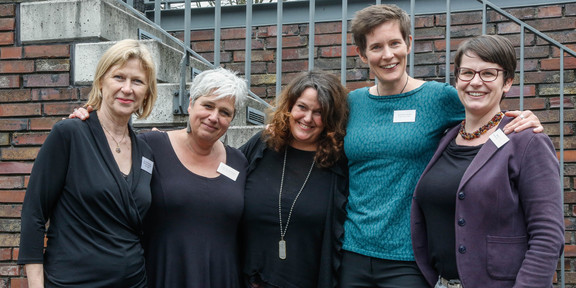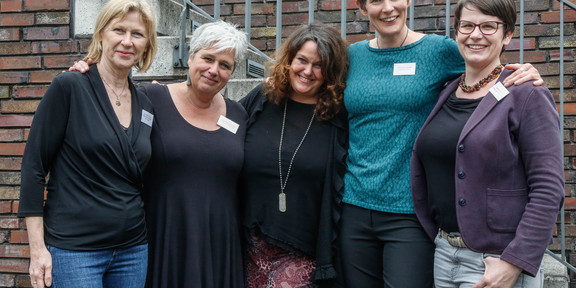LaKof NRW comments on the speaker's draft for a new Higher Education Act


Anchoring equality as a cross-cutting issue in higher education policy
In their statement, the LaKof spokespersons welcome the fact that the topic of equality is also given high priority in the new state government's draft amendment. Section 37a on ensuring equal opportunities for women and men in the appointment of professors, which was introduced in the last revision of the Higher Education Act in 2014 and strengthens the role of decentralized and central equal opportunities officers, remains unaffected in the current version.
With regard to the position of the Equal Opportunities Officers, however, the speakers of the LaKof NRW reject a reduction in their consultation opportunities with the University Council. The draft version limits the consultation cycle to one meeting per year. This is "particularly questionable due to the extended powers of the University Council, as it decides on numerous management instruments that include gender equality aspects."
(At TU Dortmund University, the central Equal Opportunities Officer attends the meetings of the University Council. She therefore has the additional opportunity to speak to the University Council four times a year on the fringes of the meeting).
Tenure Track
The speakers consider the introduction of a legal regulation on tenure track procedures to be positive. The resulting greater predictability of academic careers "is an important criterion for female academics in particular when deciding on academia as a career." The LaKof spokespersons therefore suggest that a corresponding regulation for transparent and plannable career paths should also be introduced for universities of applied sciences.
Protection against sexualized discrimination and violence for students
In light of the ongoing #MeToo debate on sexualized discrimination and violence, the LaKof spokespersons recommend using the amendment to the Higher Education Act to create clearer legal requirements in this area. With this demand, they also refer to the German Rectors' Conference, which only adopted a recommendation on dealing with sexualized discrimination and violence in the university context in April. While university employees are protected from sexualized discrimination and violence by the General Equal Treatment Act, this does not apply just as clearly to students. The LaKof NRW and the German Rectors' Conference therefore recommend that the protection of students should also be made visible as a responsibility of universities and universities of applied sciences. In other federal states, this has already been achieved through the inclusion of a corresponding paragraph in the respective university laws.
Contentious issue: compulsory attendance
With the last amendment to the HG NRW in 2014, a ban on compulsory attendance was enshrined in law. This controversial point has been withdrawn in the new draft bill; attendance requirements may therefore be reintroduced, and teachers and students at each university are to decide on this jointly. The LaKof spokespersons note that this step is problematic with regard to the issue of family-friendly universities. In their statement, they say: "The removal of the ban on compulsory attendance creates consequential problems, especially for students with care or parenting responsibilities." The LaKof spokespersons are not explicitly in favor of retaining the ban on compulsory attendance, but are calling for greater consideration to be given to people with care responsibilities.
Study progress agreements
As a new instrument for improving the chances of academic success and reducing high drop-out rates, the speaker's draft introduces so-called "study progression agreements", which universities can conclude with students in the context of subject-specific study consultations in order to ensure meaningful (further) study. In their statement, the LaKof NRW spokespersons also refer to the strengthening of family friendliness and the consideration of students' personal circumstances in the creation of study plans: "Pure subject-specific study advice is not always sufficient or expedient here."
Gender budgeting
The gender budgeting method links the distribution of financial resources to aspects that promote gender equality. The LaKof spokespersons recommend implementing the gender budgeting approach in the new Higher Education Act in order to increase the effectiveness of gender equality instruments. Accordingly, for example, the fulfillment of the statutory gender equality quota for professors should be taken into account in the allocation of funds by the Ministry and in the allocation of funds within the university.





